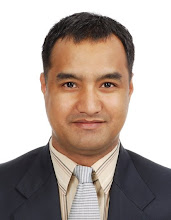Jeevan Baniya
Why do you want to be an NGO activist? Why do you like to demonstrate, campaign and protest against something? These are the questions that an NGO student may encounter in his studies It is natural for people to presume that an NGO Studies course deals with the areas that the NGOs are supposed to cast their eyes on. Even so-called educated and intellectuals ask those kinds of questions to me. Students generally have some misunderstandings about the scope and the meaning of this course and its usefulness in their future career; hence they are pre-occupied with the conception that their career development opportunities will be limited within NGO sectors. Consequently, students are not so eager to pursue their higher education in that area.
The crystal clear example can be seen if you compare the number of students in IB or IT to that of NGO Studies. But, considering the courses the NGO Studies students take in GSIS, I can conclude and affirm that NGO Studies is the study of an
open, dynamic, global, socio-political, cultural and economical world. In a sentence, it is the study of everything that is related to human affairs. The NGO studies courses empower their students with the profound knowledge of social development strategies and theories, diplomacy and international relations, international cooperation, governance and government, and so on.
Besides, students can have the great opportunities to experience different activities that Korean Civil Society Organizations may undertake. There is no doubt that civil society is not a mechanism that can be turned off and on at will. Neither is it a convenient delivery mechanism for donor agencies or governments. It is generally viewed as a body which evolves out of genuine local needs and actions. Civil society in one sense is the complex networks of autonomous institutions sustained by a civil code of conduct that is distinct from, yet maintains effective ties with, the State. What constitutes effective ties with the State is a dilemma.
Because of the diversity of NGO constituencies, sizes, strategies, structure, ideologies, specialization, sources of funding, agenda and power, it is not possible to describe an average civil society organization in Korea as in any other countries. Some of them are religious, some are secular or affiliated with political and social groups, and some are funded by businesses, foundations, private citizens and governments, and so on. In Korea it is generally understood that civil society is a kind of ideal state where every individual strives to achieve a free, just and developed society through democratic actions.
Transparency, accountability, and independence of NGOs and their influences in relations with government and donors are generally the bases that help people to judge any organization. Nevertheless, there are some people who have negative attitudes towards NGOs and their activities. There are also many people in Korea who are unhappy with the rapid growth of NGOs around the country; that has really undermined the role and attitudes of NGOs in the societies. However, there is a lot that we can learn from Korean Civil Society Organizations and NGOs if you make a deep and critical study.
Most of the Korean CSOs and NGOs have written their glorious history as they struggled against the dictatorship regimes and paved the way to democratize their country. They were actually born out of continuous suffering, torture, fears, regret and political persecution. Since their establishment, they have been passing through constant tensions and contradictions. To my knowledge, they have been always on the side of the people’s solidarity. Even though the issues of human rights, poverty, sociopolitical gap, and cultural and economic inequalities remain as the great challenges ahead of them, most intellectuals and experts are found to have accepted the outstanding role of CSOs and NGOs in democratization, human rights, peace, justice and rule of law in the country, which has overwhelmed the Korean people.
As foreigners, people will be fascinated by the key roles played by some organizations to the consolidation of the democracy by checking the abuses of state power, preventing the role of undemocratic forces from resuming the state power and encouraging wider citizen participation. By challenging the autonomy of the state at
both national and local levels, the organizations are found to have been able to pressure the government for change and development of alternative sets of policies.
It is remarkable that the organizations have succeeded to great extent in influencing political parties of Korea to make reform on party structure, democratization, decentralization, elimination of gender discrimination within party, formulation of democratic ideology and policies, and so on. There are some NGOs that have received great public support for playing a critical role to reform the corporate governance, peace and environment. There are many success stories of the organizations, which we can help to transform our social, economical, cultural and political structure so as to create a relatively democratic and equal society. Furthermore, as GSIS has been encompassing the students from different parts of the world in the NGO Studies program, students can extend their understanding of the global social problems and different strategies and policies to tackle them.
International students also can have first hand experiences of different NGO activities in Korea through participation, though the proficiency in Korean language
may pose some limit. However, there are many international students doing some internship in some NGOs, through which they have succeeded to develop their networks. I have realized that GSIS should create that kind of internship opportunity by officially approaching the organizations so that it can attract students taking NGO studies. I hope that GSIS will consider this suggestion of seeking internship opportunities for NGO students.
* This piece of article was originally published in Gazette of GSIS Ajou University in 2006 Fall. It was to express my experience while doing internship in PSPD Korea.
Subscribe to:
Post Comments (Atom)

No comments:
Post a Comment